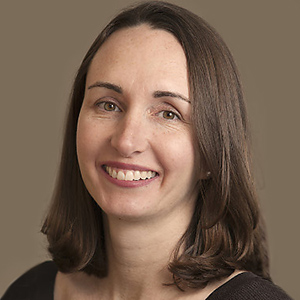Does Your Institution Have a Cardiology Leadership Group?

FEATURE | Women within the field of cardiology face unique challenges during both their training and advancement as faculty. As a group of female cardiologists at Beth Israel Deaconess Medical Center (BIDMC), we gathered together to first acknowledge and define these issues and then created a leadership development program to support career growth.
The program, which is funded by the BIDMC cardiology department, focuses on community building (both within the department and regionally), leadership training, mentorship and recruitment as avenues to support our female fellows and faculty.
We would like to share our mission statement with the broader female cardiology community in hopes that others will find it helpful in the creation of their own programs.
Members who created the program include:
- Anne-Marie Anagnostopoulos, MD, FACC, instructor of medicine at Harvard Medical School.
- Aarti Asnani, MD, instructor of medicine at Harvard Medical School.
- Loryn Feinberg, MD, FACC, instructor of medicine at Harvard Medical School.
- Airley E. Fish, MD, instructor of medicine at Harvard Medical School.
- Anne B. Riley, MD, FACC, instructor of medicine at Harvard Medical School.
- Connie W. Tsao, MD, assistant professor of medicine at Harvard Medical School.
- Meghan York, MD, FACC, instructor of medicine at Harvard Medical School.
Bidmc Women's Cardiology Leadership Development Group
Women face particular challenges in the workplace, and cardiology is no exception. While 50 percent of medical students are women, only 15 percent of women choose cardiology as a career. Even fewer choose procedural fields within cardiology (10 percent).
In addition, women earn less than their male counterparts for the equivalent work production, and there are fewer women in academic positions with even fewer being promoted to full professor (19 percent of men vs. 5 percent of women).
At BIDMC, promotion from the instructor level to assistant professorship takes a median of two years longer for women compared to men, and female representation at the professor level is lower than the national average.
To address these issues, we sought to create the BIDMC Women's Cardiology Leadership Development Group.
Goals:
- Foster an environment of community among female cardiologists at BIDMC and in the greater Boston area.
- Create opportunities for leadership positions and negotiation training for BIDMC female cardiology faculty and fellows at a local and national level.
- Promote the mentorship and academic advancement of female faculty.
- Assist division efforts in the recruitment and retention of outstanding early and advanced career female faculty members and recruitment of women into the fellowship program.
- Increase the representation of women in the field of cardiology by encouraging female internal medicine residents to consider a career in cardiology.
- Support financial equity of salaries within the division.
Community
- Have quarterly social gatherings rotating at BIDMC attendings' homes – open to all BIDMC female cardiology faculty and fellows.
- Host a networking reception every three years for female cardiology faculty members and fellows at Boston-area hospitals, possibly jointly sponsored with other Boston-area cardiology faculty divisions and/or the Massachusetts ACC Women in Cardiology (WIC) Committee.
Leadership Training
- Have a biannual division-wide lunch speaker series addressing topics such as salary equity and transparency, unconscious bias and pay negotiation.
- Have division sponsorship of a fellow and/or faculty member(s) to attend a formal leadership training course each year, such as the ACC WIC leadership training course.
Mentorship/Academic Advancement
- Cardiology grand rounds: One to two speakers each year will be specifically designated to address cardiac issues in female patients.
- Twenty percent of cardiology grand rounds speakers will be highly academically ranked female cardiologists who are leaders in the field, with goal of increasing to 50 percent over three years.
- Arrange for female faculty to have one-on-one sessions with a representative of the promotions committee every other year to discuss career progression and readiness for academic advancement by the division chief.
Recruitment and Representation
- A representative from the Women's Cardiology Leadership Development Group will be involved in recruitment efforts for new faculty, including the hiring of at least one senior-level female faculty over the next two years.
Move Towards Equity
- Investigate the salary equity of men and women in the division.
- Create a division policy that the majority of faculty meetings occur during the business day, and not after hours.
- Participate in the BIDMC Department of Medicine's Advancement of Women Committee.
- Support and advise on the opportunity for flexible workplace schedules within the division.
